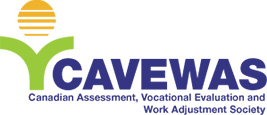One of the most challenging roles a career and work counsellor may face is job placement for clients with special needs. To bridge the gap between vocational assessment and job placement, service providers need to factor disability and accommodation needs into the equation in order to develop a realistic employment goal that will improve the odds for workplace success.
To begin with, career and work practitioners need an operational definition of disability. The World Health Organization places it on a continuum ranging from impairment (a permanent or temporary anatomical, physiological or psychological abnormality) to disability (a partial or total loss of functioning caused by an impairment) to handicap (a social or environmental disadvantage resulting from an impairment or disability).
According to the 2012 Canadian Survey on Disability conducted by Statistics Canada (http://www.statcan.gc.ca/pub/89-654-x/89-654-x2015001-eng.htm), disability was a reality for 3.8 million (13.7%) Canadians, with 11,603,340 men and 11,584,010 women being of working age (15-65). Pain, flexibility and mobility were cited as the most common forms of limitation. The prevalence of age-standardized disability ranked highest in Nova Scotia (17.9%); Yukon (16.3%); Prince Edward Island (15.6%); Manitoba (15.6%); New Brunswick (15.5%); Ontario (15.5%); Saskatchewan (14.7%); British Columbia (14.5%); Alberta (13.9%); and Newfoundland (13.6%). Provinces and territories with the lowest rates of disability were Quebec (9.3%); Northwest Territories (11.7%); and Nunavut (11.7%). In 2011, the employment rate for Canadians aged 25 to 64 with disabilities was 49%, compared with 79% for those who are able bodied. Among those with a ‘very severe’ disability, the employment rate was only 26%.
Creative job development strategies are needed to remove the functional, structural and attitudinal barriers faced by job seekers and employees with disabilities. The Neglected or Hidden study conducted by the Canadian Abilities Foundation showed that many employees with disabilities require workplace accommodations, and were only half as likely as their able bodied coworkers to keep a job for at least a year. Researchers identified a lack of practical work experience, employer attitudes and lack of accommodations as the primary factors that contribute to unemployment for people with disabilities.
Furthermore, the study revealed that employment counselling and job development staff felt pressure from funders to quickly place clients. This resulted in a tendency to refer candidates to advertised positions for which they were less than ideally suited, which culminated in a bad experience for both employer and job seeker. Employers also had limited awareness of and contact with job developers.
An HRSDC (now known as Employment and Social Development Canada) regional roundtable discussion of labour market participation of people with disabilities in Vancouver concluded that the best services and programs for reintegration into the labour market are assistive devices, long term on-the-job coaching, as well as partnerships among different levels of government and between government and industry employers.
One such creative approach is job carving, which entails relationship based marketing with a business and diagnostic approach to determine the potential employer’s needs or challenges and offer solutions. It is a systematic process comprised of the following steps:
- studying a company and identifying how they can improve things like operational efficiency and cost effectiveness – for this reason, it would be best if the job developer had good business knowledge and experience – researching and observing worksites and maintaining frequent contact with employers is essential to determine differences in performance standards, company policies and procedures as well as personalities and workplace culture;
- analyzing the responsibilities of a particular job and matching your client’s abilities, skills and work as well as life experience with the employer’s needs – it is important to refrain from marketing candidates during the early stages of the relationship building process;
- upon finding a suitable match, presenting a proposal to the employer outlining the problem or need the employer has, how hiring through your agency can address this need, and the value and benefits of hiring your particular candidate – isolating, dangerous or unpleasant tasks that no one else would do are excluded because they devalue and degrade people with disabilities.
By accessing the hidden job market in this way, the job developer allays the employer’s fears concerning accommodation costs, reliability issues and customer perceptions of workers who have a disability. This results in greater job retention and an increased openness to hiring candidates.
Another alternative to conventional job development that is becoming quite popular and successful is social enterprise. The Counselling Foundation of Canada hosted a webinar on this topic in July of 2013. Social enterprise is a business operated by a non-profit organization that meets a community need, implements a social mission and facilitates financial sustainability. This leads to a financial and social return on investment. The social enterprise business model spans a continuum ranging from not-for-profit ownership which secures revenue from gifts, donations and fees for service to for-profit, private ownership which may be subsidized, self-sustaining or profitable. Strategic planning, therefore, must encompass three areas – mission performance, business performance and organizational sustainability.
Work opportunities offered by social enterprises can take the form of training, transitional or long-term employment. For example, Eva’s Phoenix Print Shop in Toronto offers employment training; Mission Possible in Vancouver provides transitional employment; and Inner City Renovation in Winnipeg focuses on long-term employment. A-Way Express is another popular social enterprise operating in Toronto that is staffed by mental health consumer survivors.
Currently, D.I.C.E. Assessment is seeking members to join a panel to develop a social enterprise that is run by and for people with disabilities who have their undergraduate or graduate degree in social work or other academic field. I invite anyone who is interested to contact me.
